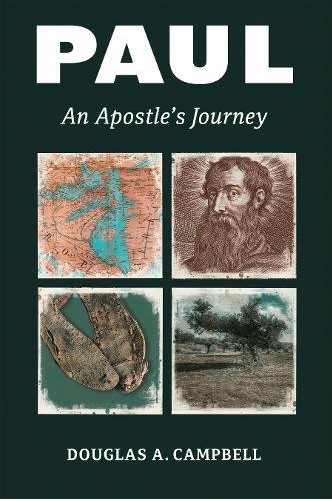 The standard reading of the apostle Paul’s life is the story of conversion, and at work in that story is religion and hence of Paul “finding religion” or “leaving religion for faith.” In the altogether exciting 15th chp of NT Wright’s Paul and the Faithfulness of God, Wright pitches his tent in a way that he gets a good angle on this very topic (though I shall suggest another angle might provoke a more refined perspective on the question if Paul was a convert).
The standard reading of the apostle Paul’s life is the story of conversion, and at work in that story is religion and hence of Paul “finding religion” or “leaving religion for faith.” In the altogether exciting 15th chp of NT Wright’s Paul and the Faithfulness of God, Wright pitches his tent in a way that he gets a good angle on this very topic (though I shall suggest another angle might provoke a more refined perspective on the question if Paul was a convert).
He sees three definitions often at work: (1) those who see Paul abandoning one religion (Judaism) for another (Christianity) — which is not how Paul saw it; (2) an inner renewal on the part of those who had no faith — again not the best way to see Paul; and (3) the move from “religion” (externality kind of thing) to “faith” (inner reality). Again, NT Wright says this too is not how Paul saw things. He says more about this third view, because he’s right in saying this is the core orientation in the “old” perspective on Paul:
But this (mis)reading has provided the context for a standard ‘old perspective’ view not only of what happened on the Damascus Road but of ‘justification by faith’ itself. Such modern western converts, having previously assumed that ‘religion’ was a matter of impressing God by good works, have discovered through ‘conversion’ that what mattered was not their work for God but God’s loving rescue of them. It has then been easy and natural for people to imagine that this was how it was for Saul of Tarsus: trying to earn God’s favour by good deeds, and then coming to realize that what mattered was divine grace and answering faith. All this is well known, and has formed the staple diet of many a sermon, many a system. This meaning of ‘conversion’, however, is severely anachronistic in Paul’s case. That, too, was part of Stendahl’s point, and it stands near the heart of the so-called ‘new perspective’: Saul of Tarsus was not trying to earn his own salvation by hard moral effort and needing to learn about previously unknown quantities called ‘grace’ and ‘faith’. As we have seen, something very different was going on (1420).
What does Paul say? That’s the question NTW asks, and it’s the right question. In his view, the only passage from Paul on this event is Galatians 1:15-17, so it is worth quoting to see what Paul himself calls what happened to him:
Gal. 1:15 But when God, who had set me apart before I was born and called me through his grace, was pleased 16 to reveal his Son to me, so that I might proclaim him among the Gentiles, I did not confer with any human being, 17 nor did I go up to Jerusalem to those who were already apostles before me, but I went away at once into Arabia, and afterwards I returned to Damascus.
The term he uses is “called” — so to Wright we go: “There is nothing here about repentance and faith; nothing about finding his heart strangely warmed; nothing about replacing ‘works’ with ‘faith’. There is a ‘call,” that of the ancient prophets…” (1421).
To be sure, there is here a “fresh and transformative divine work… revolutionized” (1423). So if the primary theme is call there is also a sense of conversion (as in Alan Segal’s works). But Paul did not think others needed his experience (which in my view is the precise problem at work in so much rigorous thinking about the old perspective, whether it is the Puritan kind of experience or the Wesleyan one or the modern evangelical revivalist sort). He wanted them to enter into the new age inaugurated in Jesus’ death and resurrection and exaltation. Wright finishes this section of chp 15 with summary reflections, and I quote them here:
What happened to Paul on the road to Damascus contained at its core, he insists, a personal meeting involving a real ‘seeing’ of the risen Jesus; a cognitive awareness that the resurrection had declared Jesus to be Israel’s Messiah, and that his death and resurrection were the Israel-redefining and world-claiming events for which Israel had longed; and a personal transformation such as love regularly effects, in which the heart itself was, in biblical language, ‘circumcised’, enabled at last to love the One God with a spirit-given love, and thus to keep the Shema itself. A call: in a sense. A conversion: in a sense. What happened to Paul, personally and convulsively, was what through the Messiah’s death and resurrection had happened to the world as a whole, as he says in Galatians 6.14, and more specifically to Israel as a whole, resulting in the mission to the nations. God’s Israel-purpose was fulfilled, and was trans- formed in fulfilment. Paul believed that this transformation, and this fulfilment, had been effected in him and was being effected through him. And all this happened through the revelation of Jesus on the road to Damascus.
The issue here for me is completely tied into how one defines “conversion.” In this case I appeal to my own work, both in Turning to Jesus and in Finding Faith, Losing Faith, where conversion is defined the rewriting of one’s own autobiography. If a person tells their own story in a new way then a conversion has occurred. Conversion then is determined by whether or not a person rewrites their own story: if they don’t, no conversion; if they do, conversion. (I don’t equate conversion with being saved, by the way, though they are often connected. Some people ease into the faith like evening shadows moving instead of through an event or series of events that rewrites their story.) For this I would appeal to Philippians 3, a text in which we see Paul reflecting on the rewriting of his own autobiography (past story, formerly, but now, that kind of thing):
3 For it is we who are the circumcision, who worship in the Spirit of God and boast in Christ Jesus and have no confidence in the flesh— 4 even though I, too, have reason for confidence in the flesh.
If anyone else has reason to be confident in the flesh, I have more: 5 circumcised on the eighth day, a member of the people of Israel, of the tribe of Benjamin, a Hebrew born of Hebrews; as to the law, a Pharisee; 6 as to zeal, a persecutor of the church; as to righteousness under the law, blameless.
7 Yet whatever gains I had, these I have come to regard as loss because of Christ. 8 More than that, I regard everything as loss because of the surpassing value of knowing Christ Jesus my Lord. For his sake I have suffered the loss of all things, and I regard them as rubbish, in order that I may gain Christ 9 and be found in him, not having a righteousness of my own that comes from the law, but one that comes through faith in Christ, the righteousness from God based on faith. 10 I want to know Christ and the power of his resurrection and the sharing of his sufferings by becoming like him in his death, 11 if somehow I may attain the resurrection from the dead.











